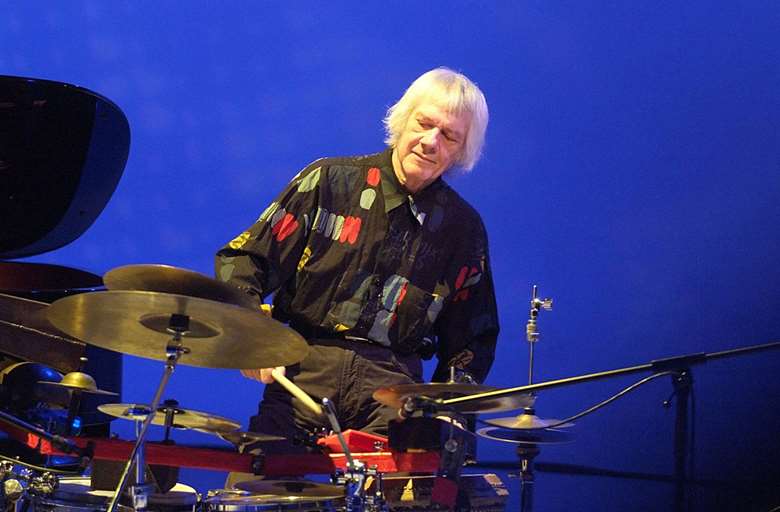Tony Oxley (15/6/1938 - 26/12/2023)
Alyn Shipton
Tuesday, January 2, 2024
Alyn Shipton pays tribute to the versatile virtuoso British jazz drummer who has died aged 85

The extraordinary range and musical interests of Tony Oxley made him a fascinating drummer in all the varied contexts in which he worked. He refined his drumming skills in the late 1950s Black Watch Regimental Band, and then worked on the Queen Mary, before teaming up with Derek Bailey and Gavin Bryars in the experimental trio Joseph Holbrooke. While house drummer at Ronnie Scott’s, he won the 1968 Melody Maker poll, going on to work with many luminaries of the British scene, from small groups with Alan Skidmore and Gordon Beck to the larger forces of Mike Gibbs. He’s the drummer on John McLaughlin’s celebrated album Extrapolation, after which he pioneered combining jazz percussion with electronics, as well as continuing to work in a free setting with Derek Bailey and Evan Parker (with whom he founded Incus records). He was also involved in the London Jazz Composers’ Orchestra and bands with Kenny Wheeler and Tony Coe.
Few of his musical colleagues summed up Oxley’s contribution as succinctly as Tomasz Stanko (in whose quartet Tony worked in the 1990s) saying: ‘He had various tricks, which free musicians don't play. He played everything because he was an old cat. Don’t forget that Oxley had drummed at Ronnie Scott’s. He’d played with Rollins. He’d started playing time, but at a certain point he moved over to free, and ostentatiously stopped playing metrically.’ Certainly, hearing his work with Cecil Taylor or Paul Bley, Oxley was far from rigidly metrical, yet he had an innate sense of time, so that with players such as Bobo Stenson, he effortlessly locked into their time-feel. ‘No matter what you're doing,’ he told me, ‘it will cut through…A lot of drummers are shoving this on the wherever, usually two and four…but it really needs a different sound, and to think about the cymbal they’re playing on, for it to mean anything.’
By mid-career Oxley had one of the largest drum-kits on the European jazz scene. He summed it up in 1997, when I interviewed him for BBC radio: ‘The acoustic part is: drums — eight, of various sizes and texture; cymbals, fourteen, various sizes, thicknesses, weights, sounds; cowbells - five, from six inches to sixteen inches; wood surfaces - five, wood blocks and oriental skulls; saucepans - two. The amplified section of the kit is: an amplified frame containing cymbals, wires, various kitchen equipment, motor generators, springs, used with three contact mikes (home-made), two volume pedals, one octave splitter, one compressor, a ring modulator and oscillator, one amplifier and two speakers.’
Feeling that Britain was less welcoming to his music than continental Europe, he settled in Germany in 1979, going on to found the Celebration Orchestra five years later. In this band, UK colleagues such as Tony Levin, Pat Thomas and Phil Minton worked alongside such eminent European players as Philipp Wachsmann, or visiting Americans including Bill Dixon. Oxley worked on into the 21st century, and for someone who hated flying, he managed to travel extensively. His last album, The New World, with electronics and percussion, appeared last year, with his own artwork on the cover.


